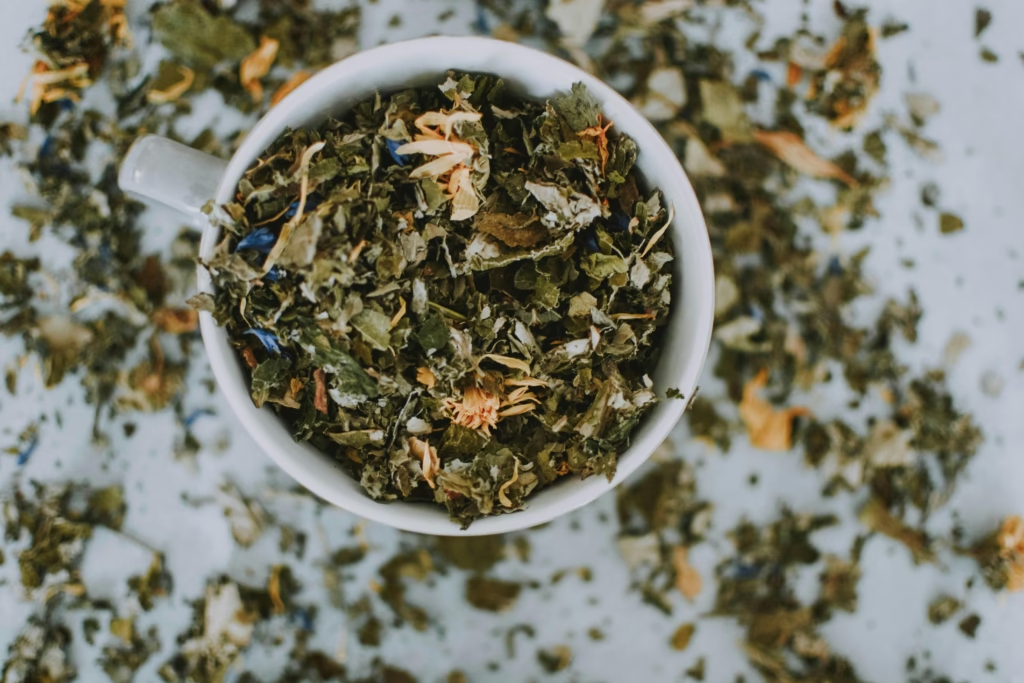Tea is one of the most popular beverages in the world, and when it comes to healthy choices, green tea vs. black tea is one of the most common comparisons. Both types of tea come from the same plant, Camellia sinensis, but they are processed differently, giving them unique flavors, colors, and health benefits. If you’ve ever wondered which tea is better for your lifestyle, this guide will walk you through their differences, benefits, and how to choose the right one for you.
What Is Green Tea?
Green tea is made from fresh tea leaves that are quickly steamed or pan-heated to prevent oxidation. This process preserves its natural green color and high concentration of antioxidants, especially catechins such as epigallocatechin gallate (EGCG). These compounds are associated with heart health, brain function, and weight management.
Because of its lighter processing, green tea has a more delicate, grassy flavor and is often enjoyed without milk or sweeteners. Popular varieties include Japanese matcha, sencha, and gyokuro, each offering subtle differences in taste and aroma.

What Is Black Tea?
Black tea, on the other hand, undergoes full oxidation, which darkens the leaves and gives the tea its characteristic deep color and robust flavor. This process enhances the levels of theaflavins and thearubigins, unique antioxidants that may support heart health and improve cholesterol levels.
Black tea is the most consumed tea in the world, with varieties like Assam, Darjeeling, and Earl Grey. It is also the base for popular blends such as English Breakfast and Masala Chai.
Green Tea vs. Black Tea: Nutritional Differences
When comparing green tea vs. black tea, the key differences lie in their antioxidant profiles and caffeine content:
- Green tea: Higher in catechins (EGCG), lower in caffeine.
- Black tea: Higher in theaflavins, slightly more caffeine.
Both contain polyphenols that protect against oxidative stress, but their unique compounds may influence different health outcomes.
Health Benefits of Green Tea
Green tea is often considered a “super drink” because of its high antioxidant levels. Key benefits include:
- Boosts metabolism and supports weight management.
- Improves brain function by enhancing alertness without overstimulation.
- Supports heart health by reducing LDL cholesterol and improving blood circulation.
- May lower risk of certain cancers due to its powerful antioxidant activity.
- Promotes healthy skin and slows signs of aging thanks to EGCG.

Health Benefits of Black Tea
Black tea offers its own unique advantages, especially for those who prefer a stronger flavor and a slightly higher caffeine content. Benefits include:
- Improves heart health by lowering blood pressure and cholesterol.
- Supports gut health through the promotion of healthy gut bacteria.
- Enhances focus and energy due to higher caffeine compared to green tea.
- Contains antioxidants (theaflavins and thearubigins) that reduce oxidative stress.
- May reduce stroke risk according to several long-term studies.
Caffeine Content: Which One to Choose?
If you’re sensitive to caffeine, green tea may be a better option since it generally contains about 30–50 mg per cup. Black tea contains around 40–70 mg per cup, making it a good choice for those who need a stronger boost of energy without resorting to coffee.
Both teas contain L-theanine, an amino acid that promotes relaxation and focus, helping to balance the effects of caffeine.

Green Tea vs. Black Tea for Weight Loss
One of the biggest questions people ask is: Which tea is better for weight loss?
- Green tea: Its catechins, especially EGCG, have been shown to boost metabolism and support fat oxidation. This makes it slightly more effective for those aiming to lose weight.
- Black tea: Can also aid in weight management by supporting gut microbiota balance and improving digestion, although its effects are less studied compared to green tea.
For best results, tea should be paired with a balanced diet and regular exercise.
Taste, Brewing, and Cultural Differences
Beyond health, the experience of drinking tea is also about taste and tradition:
- Green tea: Light, grassy, slightly sweet. Best brewed at lower temperatures (70–80°C / 160–175°F) for 2–3 minutes. Overbrewing can make it bitter.
- Black tea: Bold, robust, malty, sometimes with floral or fruity notes. Typically brewed with boiling water (95–100°C / 200–212°F) for 3–5 minutes.
Culturally, green tea is deeply tied to Japanese and Chinese traditions, while black tea is a staple in Western countries like the UK and India.
Which Tea Should You Choose?
When deciding between green tea vs. black tea, the answer depends on your health goals and taste preferences:
- Choose green tea if you want a lighter, antioxidant-rich drink to support weight management, brain health, and skin vitality.
- Choose black tea if you prefer a stronger flavor, a slightly higher caffeine boost, and benefits for heart and gut health.
Ultimately, both teas are healthy choices and can be enjoyed as part of a balanced lifestyle.

Helpful Links for Further Reading
Disclaimer
This article is for informational purposes only and does not provide medical advice. Always consult with a qualified healthcare professional before making dietary changes, especially if you have pre-existing health conditions or are taking medications.

